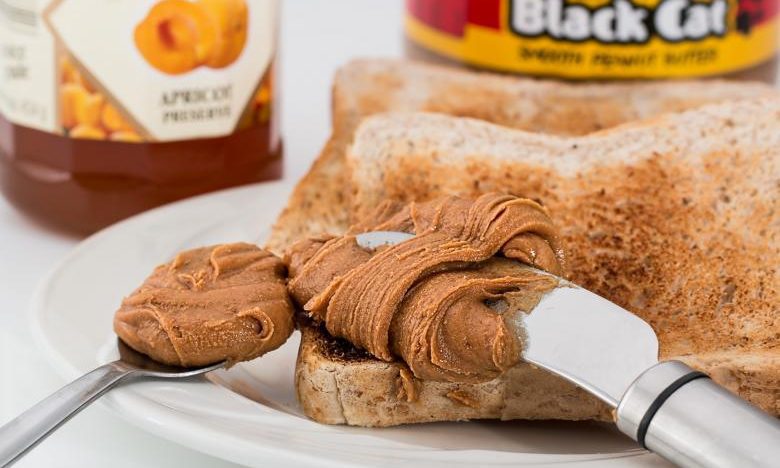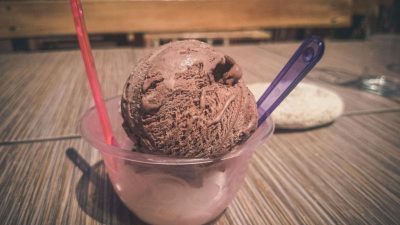Peanut butter is a popular and delicious spread enjoyed worldwide, but many people wonder about the calories in peanut butter and its impact on health. Whether you’re trying to lose weight, build muscle, or simply maintain a balanced diet, understanding its nutritional profile is crucial. In this article, we will explore the calorie content, health benefits, and the best ways to incorporate peanut butter into your diet.
Nutritional Profile of Peanut Butter
Peanut butter is a nutrient-dense food packed with proteins, healthy fats, and essential vitamins. Here’s a general breakdown of one tablespoon (16g) of peanut butter:
- Calories: ~90-100 kcal
- Protein: 3.5-4g
- Fats: 8g (mostly healthy monounsaturated and polyunsaturated fats)
- Carbohydrates: 3-4g
- Fiber: 1g
- Sugar: 1g
A standard two-tablespoon (32g) serving contains around 190-200 calories, making it an energy-dense food that provides sustained energy.
Health Benefits of Peanut Butter
1. Supports Weight Loss and Management
Although peanut butter is calorie-dense, it can actually help with weight management when consumed in moderation. The healthy fats and protein promote satiety, reducing overall calorie intake by curbing hunger.
Tip: Pair peanut butter with fiber-rich foods like whole-grain bread or apple slices for a balanced snack that keeps you full longer.
2. Muscle Building and Recovery
For those looking to gain muscle, peanut butter is an excellent source of protein and healthy fats, essential for muscle repair and growth. It’s commonly used in high-protein diets and post-workout meals.
External Resource: Healthline: The Benefits of Peanut Butter for Athletes
3. Heart Health and Cholesterol Management
The monounsaturated and polyunsaturated fats in peanut butter contribute to heart health by reducing bad cholesterol (LDL) and increasing good cholesterol (HDL). Studies suggest that regular consumption of peanuts and peanut butter lowers the risk of cardiovascular diseases.
External Resource: American Heart Association: Healthy Fats & Heart Health
4. Rich in Essential Nutrients
Peanut butter contains important vitamins and minerals like:
- Vitamin E – A powerful antioxidant
- Magnesium – Supports muscle and nerve function
- Potassium – Helps regulate blood pressure
- Niacin (Vitamin B3) – Supports metabolism and brain function
Comparing Peanut Butter with Other Nut Butters
If you’re wondering how peanut butter stacks up against almond butter, cashew butter, and others, here’s a quick comparison:
| Nut Butter | Calories (per 2 tbsp) | Protein | Healthy Fats | Fiber |
|---|---|---|---|---|
| Peanut Butter | ~190-200 | 7g | 16g | 2g |
| Almond Butter | ~180-200 | 6g | 18g | 3g |
| Cashew Butter | ~180 | 5g | 14g | 1g |
| Sunflower Butter | ~200 | 5g | 17g | 2g |
Peanut butter offers a great balance of protein, healthy fats, and affordability, making it a top choice for many.
How to Incorporate Peanut Butter into Your Diet
To get the most benefits while keeping calorie intake in check, try these healthy ways to enjoy peanut butter:
- Spread it on Whole-Grain Toast – A nutritious breakfast that provides energy for the day.
- Blend it into Smoothies – A great addition to protein shakes for post-workout recovery.
- Use it as a Dip – Pair with celery sticks, apple slices, or bananas for a healthy snack.
- Make Peanut Butter Energy Balls – Mix with oats, honey, and seeds for a high-protein snack.
- Drizzle Over Oatmeal – Enhances flavor and adds healthy fats to your breakfast.
Choosing the Healthiest Peanut Butter
When buying peanut butter, check the ingredient list to ensure you’re getting the healthiest option. Here’s what to look for:
✅ Ingredients: 100% peanuts, minimal salt, and no added sugar or hydrogenated oils.
❌ Avoid: Highly processed peanut butters with trans fats, artificial additives, and excessive sugar.
Does Peanut Butter Cause Weight Gain?
One common concern is that peanut butter might lead to weight gain due to its high-calorie content. However, research shows that moderate consumption can actually support weight management. Since it’s rich in protein and fiber, it keeps you full for longer, reducing cravings and overall calorie intake.
Final Thoughts: Should You Eat Peanut Butter?
Absolutely! Peanut butter is a nutritious, protein-packed, and versatile food that fits into almost any diet. Whether you’re looking to lose weight, gain muscle, or simply enjoy a healthy snack, peanut butter is a great choice.
Just remember to consume it in moderation and opt for natural peanut butter with minimal additives for the best health benefits.
External References:
- Harvard School of Public Health: Health Benefits of Nuts & Peanut Butter
- USDA: Nutritional Information for Peanut Butter
By incorporating peanut butter wisely into your diet, you can enjoy its delicious taste while reaping numerous health benefits.




